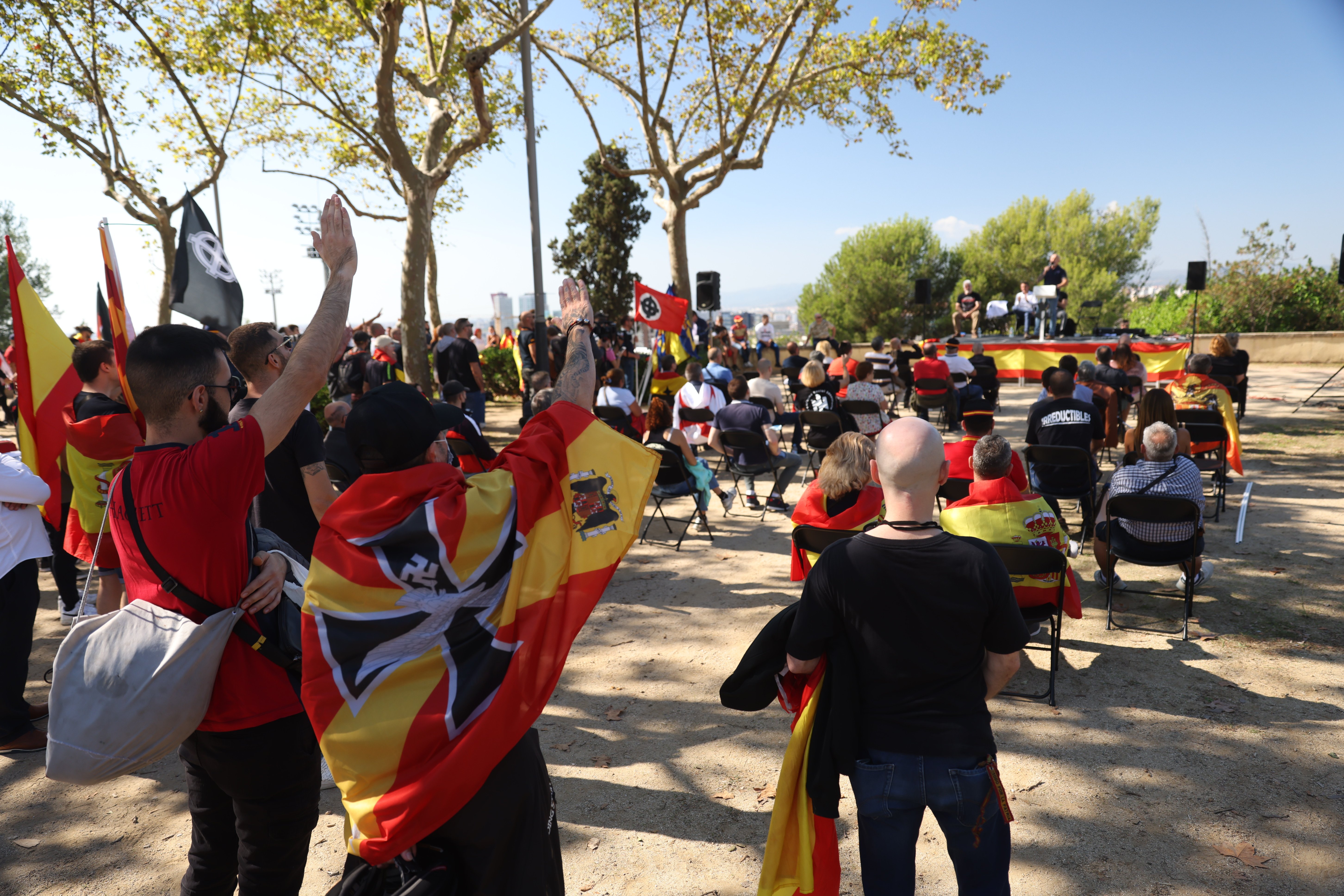Catalonia's proposed new law on democratic memory is taking new steps forward after a long journey. It is a "long-distance race" that was begun by former minister Esther Capella, continued by her successor Lourdes Ciuró and "culminated" by the current Catalan justice minister, Gemma Ubasart. The draft, presented this Wednesday, will be approved by the Catalan cabinet next Tuesday. Among other issues, it makes progress in the recognition of victims, includes democratic memory in educational curricula and prosecutes with fines the glorification of the Franco dictatorship and its symbols, which must be removed within two years. The text has favourable reports from the legal experts and, once passed by the government, will make the jump to Parliament to continue the legislative process.
In a press conference this Wednesday, minister Gemma Ubasart described it as an "ambitious project", which will merge existing regulations and take a step forward. And she thanked the collaboration of memorialist and municipal organizations. The head of the Catalan justice department spoke of a "new paradigm in memory policies" and of legislation at the level of the most advanced laws at European level. In the same vein, the general director of democratic memory, Alfons Aragoneses, has claimed that the draft "follows the principles of international law", specifically the principles of truth, justice, reparation and guarantees of non-repetition.
Fascist glorification and symbols
The bill addresses the exaltation of Francoism. On the one hand, as the minister explained, the list of Francoist monuments in public locations will be updated (reducing the exceptions as much as possible), and there will be a two-year period for these to be completely removed from the moment it comes into force. When asked about the case of the Tortosa monument, in the river Ebre, which is being prosecuted, Ubasart considered that with the new regulations "the judge will have more strength to move forward". On the other hand, the glorification of Francoism is also pursued. The new text specifies the areas covered as follows: "The individual or collective glorification of the 1936 coup d'état; of the support for it during the Civil War; of the Franco dictatorship; of its leaders; of persons, both physical and legal, or organizations that collaborated with the Franco dictatorship or that actively participated in the repressive system, or of the support of the Franco dictatorship to the Axis powers during the Second World War". For all of these cases, a regime of fines is contemplated. Very serious infringements may be prosecuted administratively with fines of between 10,000 and 150,000 euros, and serious ones, with penalties of between 2,000 and 10,000 euros.
Education from the age of six
Another notable innovation is the inclusion of democratic memory in all educational curricula. According to the justice department, this runs from primary school right through to university entrance courses and vocational training, as well as in training for adults and administrative staff. The law only establishes that the responsible fepartment, that of Education, will introduce it into the curricula, but does not specify whether as a specific subject or more transversally in the curriculum as a whole. This will be the competence of the Education ministry.
The draft also contemplates the inclusion of new days of recognition and tribute - specifically, two new dates. The first, on April 14th, to commemorate the proclamation of the Second Republic, "antecedent of the current democratic framework", in the words of minister Ubasart. The second, on November 7th, to remember the 1971 constitution of the Assemblea de Catalunya - the Catalonia Assembly, a "body of unitary anti-Franco struggle of which we consider ourselves heirs". These dates, which will not be public holidays, are added to others, such as the day of remembrance for the victims of the civil war and repression, on October 15th. On both April 14th and November 7th, the Catalan government will promote acts of remembrance.
Recognition of specific collectives of victims
Among other focuses of the new democratic memory law are the recognition of several specific groups that suffered retaliation under the Franco regime. These include children separated from their families for ideological reasons, psychiatric patients, the LGBTI group, the Romani people, people who suffered from polio and victims of drugs such as thalidomide. The new law also urges the government to include the gender perspective in all memory policies. A further area developed by the draft law is the provision of "more tools for the Generalitat to take part in legal action" for crimes against humanity and against physical and moral integrity during the civil war and the dictatorship.
Finally, the draft law also contemplates the possibility of "addressing slavery and colonialism", as detailed by minister Ubasart, a report that she considers key to the eradication of racism and institutional discrimination. This section, she defended, is "a recognition at the height of European avant-garde experiences". What the Catalan law of democratic memory does not include is the redesignation of the Via Laietana police station, torture centre during the Franco regime and the Transition and today still operational by the National Police Force and a state-owned asset. The Catalan justice department "will continue to work for its redesignation", said Ubasart.

